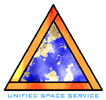 On Reflection...
On Reflection... On Reflection...
On Reflection...
I once believed that I wrote science fiction to cheat time. In more than one interview, I've asserted that the human species has an interesting--and possibly long--future ahead of it, and that writing SF allowed me to play in tomorrows I won't live to see.
That's still arguably true, and probably accounts in part for the human-focused, Earth-based, near-future emphasis of most of my fiction. But I've come to realize that there's more to it than that.
In retrospect, I've become aware that my writing has become part of my exploration of two basic questions: What is the nature of the universe we inhabit? And, why do we humans do what we do?
These are live questions of continuing interest, driving not only scientific but mystical inquiry, and firmly linked to the pains, frustrations, and joys of being alive. None of us is in possession of final and ultimate answers. (In my experience, those who believe they are prove to have simply cut off their inquiry too soon.)
We're playing the blindfold-and-elephant game, and each of us has a different piece of the elephant -- a unique set of inherited and experiential clues. In a sense, each new story, each successive novel, is my way of calling out to the rest of you, "Here's how it looks to me at the moment--"
But Answering Big Questions is too grand a pretension and too great a responsibility for everyday storytelling, because a theme does not a story make. A novel is about life as the writer sees it, and ordinary people as the writer understands them. The writer ought not sit down at the keyboard to confess, or to invent, but to give witness. And a novel ought not be an essay, or a tract, but a story. Not my story. Their story.
Who are "they"? The people who are caught in the pincers -- the characters. When I begin work on a novel, I have to know where it ends, and through whose eyes I can see it: the moment, the feeling, sometimes the exact words. When I've found a place where I can stand to be silent witness to the turns, travails and small triumphs of their lives, then, and only then, am I ready to start writing.
As I write, I have a much stronger sense of watching than creating: I find myself sorting out what must have happened, rather than "making it up." The only decision that seems to belong to me is where to begin telling the story. Two points, beginning and ending, define a line, but stories, like lives, are not straight lines. Past Chapter One, I'm embarked on a journey of discovery, learning as I go how the beginning and the ending are connected.
Because of that, it strikes me that each new fiction isn't really "about" its plot, or the characters, or the setting, or the theme, or the deconstructed analysis of its literary entrails. It's about a place I found to stand, and something I saw from there, and the feelings and thoughts that experience evoked in me. Each work, in its totality, is nothing more or less than my carefully worded invitation to come and stand where I stood, and experience it for yourself.
As best as I can tell with this blindfold on, that's what fiction is all about.
Copyright 1991 by Michael P. Kube-McDowell. All rights reserved.
Return to Biography || K-Mac's Home Page